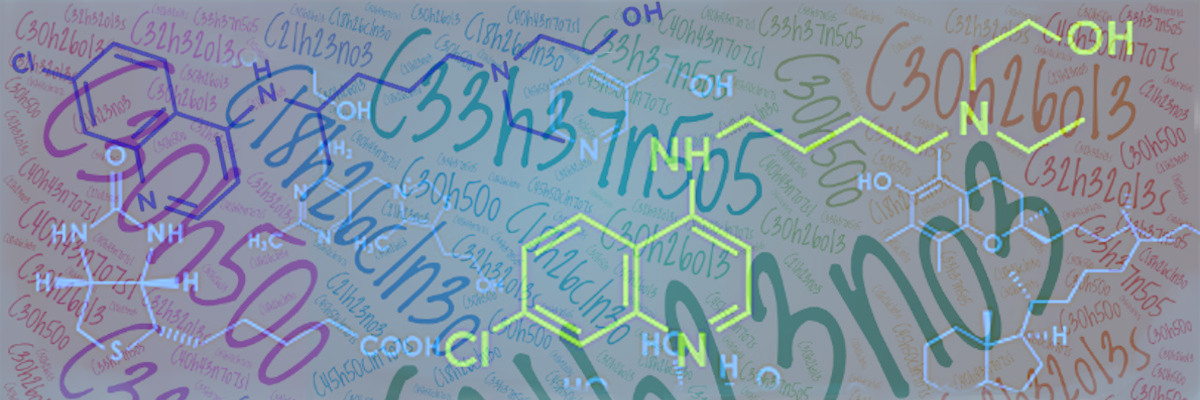SARS-CoV-2: antiviral compounds test results
This section is dedicated to preclinical evaluation of molecules with antiviral potential against the SARS-CoV-2.
It may receive links to important published articles in the field, but also preprints and reports of (still) unpublished data.
In particular, it is important to report negative results that may not deserve publication but can anyway be useful for the community.
The site is open to contributions by EVA-GLOBAL partners and external scientists. For EVA-GLOBAL partners, submission is not moderated and can be performed by sending documents to our data manager (
)
. For external partners, please send documents to our expert board (
) who will moderate submissions.
We would appreciate receiving contributions in a format close to the first contributions. Please pay attention to providing an adequate description of methods.
List of compounds test results: (click on the blue column headers to sort the corresponding columns)
List of compounds test results: (click on the blue column headers to sort the corresponding columns)
| Compound name | Brand Name | Result Type | Results summary | Related Publication | Test results file | Post date |
|---|---|---|---|---|---|---|
| Telmisartan | Micardis and Pritor | preliminary report | Telmisartan was found to slightly inhibit SARS-CoV-2 replication in vitro using Vero-E6 cells. However, results obtained using a hamster model suggest that this molecule is a poor inhibitor of SARS-CoV-2 replication in vivo |
|
October 19, 2020 | |
| Raloxifene | Evista and Optruma | preliminary report | Raloxifene was found to inhibit SARS-CoV-2 replication in vitro using Vero-E6 and Caco-2 cells. However, results obtained using a hamster model suggest that this molecule is a poor inhibitor of SARS-CoV-2 replication in vivo |
|
October 19, 2020 | |
| Prestwick Chemical library (1520 compounds) | publication | 90 compounds were identified as positive hits from the screen and remain to be validated more precisely in vitro and evaluated and in vivo | https://www.nature.com/articles/s41598-020-70143-6 | August 4, 2020 | ||
| Ondansetron | Zophren | preliminary report | Ondansetron was found to inhibit SARS-CoV-2 replication in vitro using Vero-E6 cells. However, results obtained using a hamster model suggest that this molecule is a poor inhibitor of SARS-CoV-2 replication in vivo |
|
October 7, 2020 | |
| Olmesartan | Belsar and Olmetec | preliminary report | Olmesartan was found as a primary HIT during the screen but then show poor efficiency in our RNA yield reduction assay. Moreover, results obtained using a hamster model suggest that this molecule is a poor inhibitor of SARS-CoV-2 replication in vivo |
|
October 7, 2020 | |
| Nelfinavir | Viracept | preliminary report | Nelfinavir was found to inhibit SARS-CoV-2 replication in vitro using Vero-E6 cells. However, results obtained using a hamster model suggest that this molecule is a poor inhibitor of SARS-CoV-2 replication in vivo |
|
October 19, 2020 | |
| Nabumetone | Nabucox | preliminary report | Nabumetone was found to inhibit SARS-CoV-2 replication in vitro using Vero-E6 cells. However, results obtained using a hamster model suggest that this molecule is a poor inhibitor of SARS-CoV-2 replication in vivo |
|
October 19, 2020 | |
| N-acétyl L-cystéine (NAC) | ISTENDO, HIDONAC and Exomuc | preliminary report | Results obtained in VeroE6 suggest that this compound does not inhibit SARS-CoV-2 replication in vitro. |
|
October 19, 2020 | |
| Mirtazapine | Norset and Remeron | preliminary report | Mirtazapine was found as a primary HIT in our screen and thus a potential inhibitor of SARS-CoV-2 replication. However, results obtained using a hamster model suggest that this molecule is a poor inhibitor of SARS-CoV-2 replication in vivo |
|
October 7, 2020 | |
| Imatinib | Gleevec | preprint | Overall, these results do not support the use of Imatinib and similar TKIs as antivirals in the treatment of Covid-19. | https://www.biorxiv.org/content/10.1101/2020.11.17.386904v1.full |
|
November 27, 2020 |
| Hydroxychloroquine | Plaquenil, Axemal, Dolquine and Quensyl | publication | Our findings do not support the use of HCQ, either alone or in combination with AZTH, as an antiviral drug for the treatment of COVID-19 in humans | https://www.nature.com/articles/s41586-020-2558-4 | July 22, 2020 | |
| Favipiravir / t-705 | Favilavir and Avifavir | preprint | When treatment was initiated before or simultaneously to infection, favipiravir had a strong dose effect, leading to dramatic reduction of infectious titers in lungs and clinical alleviation of the disease. The antiviral efficacy observed in this study was achieved with plasma drug exposure comparable with those previously found during human clinical trials and was associated with weight losses in animals. Thereby, pharmacokinetic and tolerance studies are required to determine whether similar effects can be safely achieved in humans |
|
July 17, 2020 | |
| 6-MercaptoPurine | Purinethole and Xaluprine | preliminary report | 6-mercaptopurine was found to inhibit SARS-CoV-2 replication in vitro using Vero-E6 cells. However, results obtained using a hamster model suggest that this molecule is a poor inhibitor of SARS-CoV-2 replication in vivo |
|
October 19, 2020 |
